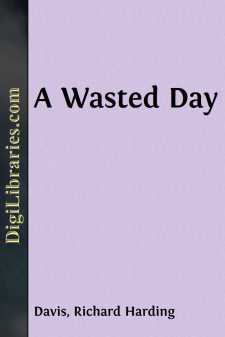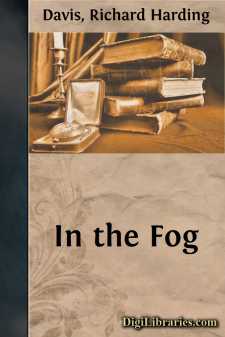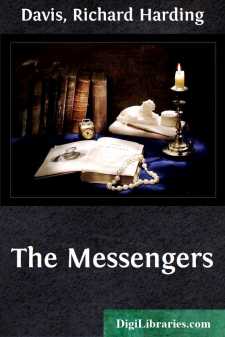Categories
- Antiques & Collectibles 13
- Architecture 36
- Art 48
- Bibles 22
- Biography & Autobiography 813
- Body, Mind & Spirit 142
- Business & Economics 28
- Children's Books 15
- Children's Fiction 12
- Computers 4
- Cooking 94
- Crafts & Hobbies 4
- Drama 346
- Education 46
- Family & Relationships 57
- Fiction 11828
- Games 19
- Gardening 17
- Health & Fitness 34
- History 1377
- House & Home 1
- Humor 147
- Juvenile Fiction 1873
- Juvenile Nonfiction 202
- Language Arts & Disciplines 88
- Law 16
- Literary Collections 686
- Literary Criticism 179
- Mathematics 13
- Medical 41
- Music 40
- Nature 179
- Non-Classifiable 1768
- Performing Arts 7
- Periodicals 1453
- Philosophy 64
- Photography 2
- Poetry 896
- Political Science 203
- Psychology 42
- Reference 154
- Religion 513
- Science 126
- Self-Help 84
- Social Science 81
- Sports & Recreation 34
- Study Aids 3
- Technology & Engineering 59
- Transportation 23
- Travel 463
- True Crime 29
A Wasted Day
Description:
Excerpt
When its turn came, the private secretary, somewhat apologetically, laid the letter in front of the Wisest Man in Wall Street.
"From Mrs. Austin, probation officer, Court of General Sessions," he explained. "Wants a letter about Spear. He's been convicted of theft. Comes up for sentence Tuesday."
"Spear?" repeated Arnold Thorndike.
"Young fellow, stenographer, used to do your letters last summer going in and out on the train."
The great man nodded. "I remember. What about him?"
The habitual gloom of the private secretary was lightened by a grin.
"Went on the loose; had with him about five hundred dollars belonging to the firm; he's with Isaacs & Sons now, shoe people on Sixth Avenue. Met a woman, and woke up without the money. The next morning he offered to make good, but Isaacs called in a policeman. When they looked into it, they found the boy had been drunk. They tried to withdraw the charge, but he'd been committed. Now, the probation officer is trying to get the judge to suspend sentence. A letter from you, sir, would—"
It was evident the mind of the great man was elsewhere. Young men who, drunk or sober, spent the firm's money on women who disappeared before sunrise did not appeal to him. Another letter submitted that morning had come from his art agent in Europe. In Florence he had discovered the Correggio he had been sent to find. It was undoubtedly genuine, and he asked to be instructed by cable. The price was forty thousand dollars. With one eye closed, and the other keenly regarding the inkstand, Mr. Thorndike decided to pay the price; and with the facility of long practice dismissed the Correggio, and snapped his mind back to the present.
"Spear had a letter from us when he left, didn't he?" he asked. "What he has developed into, SINCE he left us—" he shrugged his shoulders. The secretary withdrew the letter, and slipped another in its place.
"Homer Firth, the landscape man," he chanted, "wants permission to use blue flint on the new road, with turf gutters, and to plant silver firs each side. Says it will run to about five thousand dollars a mile."
"No!" protested the great man firmly, "blue flint makes a country place look like a cemetery. Mine looks too much like a cemetery now. Landscape gardeners!" he exclaimed impatiently. "Their only idea is to insult nature. The place was better the day I bought it, when it was running wild; you could pick flowers all the way to the gates." Pleased that it should have recurred to him, the great man smiled. "Why, Spear," he exclaimed, "always took in a bunch of them for his mother. Don't you remember, we used to see him before breakfast wandering around the grounds picking flowers?" Mr. Thorndike nodded briskly. "I like his taking flowers to his mother."
"He SAID it was to his mother," suggested the secretary gloomily.
"Well, he picked the flowers, anyway," laughed Mr. Thorndike. "He didn't pick our pockets. And he had the run of the house in those days. As far as we know," he dictated, "he was satisfactory. Don't say more than that."
The secretary scribbled a mark with his pencil. "And the landscape man?"
"Tell him," commanded Thorndike, "I want a wood road, suitable to a farm; and to let the trees grow where God planted them."
As his car slid downtown on Tuesday morning the mind of Arnold Thorndike was occupied with such details of daily routine as the purchase of a railroad, the Japanese loan, the new wing to his art gallery, and an attack that morning, in his own newspaper, upon his pet trust....












